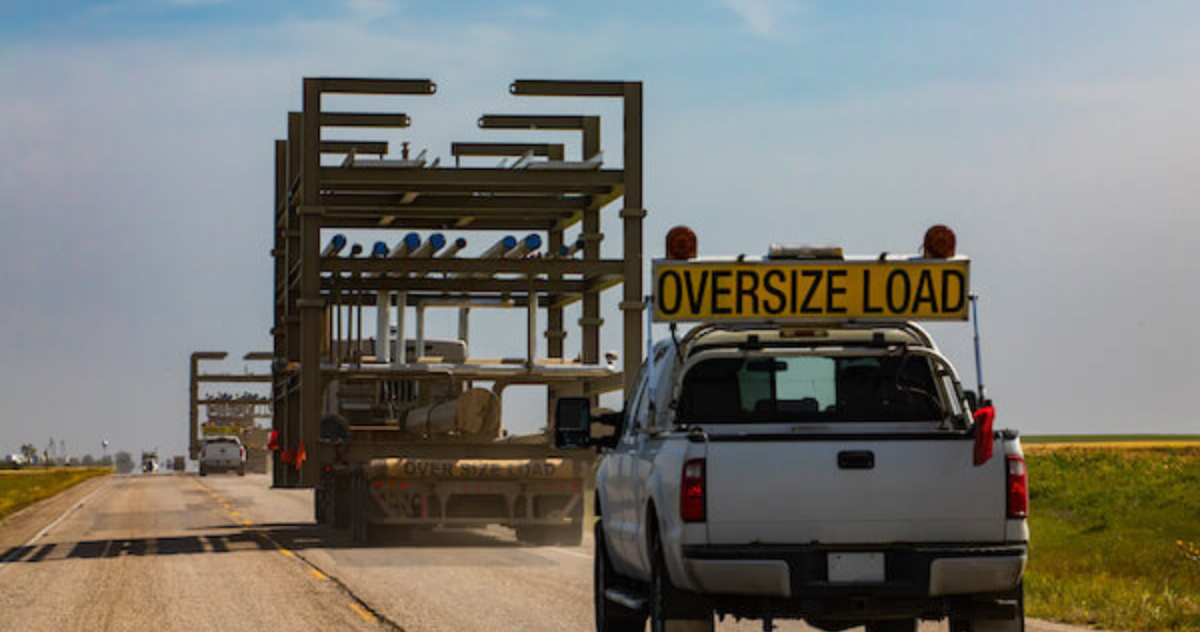New York (Transatlantic Today) – In the vast landscape of the trucking industry, the presence of pilot cars, also known as escort vehicles or guide cars, is a common sight. These inconspicuous companions play a crucial role in safely transporting oversized loads across the nation’s highways. In this article, we will delve into the world of pilot cars and their significance, and address a pertinent question: Is it illegal to pass a pilot car?
Understanding the Role of Pilot Cars
Pilot cars are the unsung heroes of the trucking industry. They are not typically part of the trucking team but are contracted to accompany and guide truckers along predefined routes. These escort vehicles serve as the guardians of safety on the road, ensuring that oversized loads reach their destinations without incident.
Why are Pilot Cars Necessary?
The necessity of pilot cars transcends geographical boundaries; it is a requirement in all fifty states for loads exceeding specific size or weight limits. The underlying rationale is simple: oversized loads pose an elevated risk to public safety. While federal regulations dictate the size limits for commercial vehicles, individual states exercise autonomy in establishing criteria for when a pilot vehicle becomes mandatory.
Depending on the state’s regulations and the dimensions of the load, multiple escort vehicles might be essential. In certain scenarios, a police or highway patrol escort might also be mandated based on the nature of the cargo and the chosen route.
The Multifaceted Role of Pilot Cars
Pilot cars are entrusted with multifarious responsibilities that encompass both proactive and reactive measures to ensure a safe journey for oversized vehicles. Let’s delve into the various facets of their role:
1. Navigating the Route
Before embarking on a journey, pilot car operators meticulously survey the chosen route. This proactive measure aims to identify potential roadblocks or hazards that could impede the safe passage of the oversized load.
2. Providing Timely Alerts
Communication is key on the road, especially when dealing with oversized loads. Pilot car operators serve as a vital link between the truck driver and the ever-changing traffic dynamics. They provide timely alerts about upcoming traffic conditions, turns, or road hazards, ensuring the trucker can make informed decisions.
3. Ensuring Visibility
One of the primary roles of pilot cars is to alert other drivers about the presence of an oversized vehicle on the road. This visibility is crucial to prevent accidents and ensure the safe passage of the load.
4. Safeguarding Lanes and Ramps
Pilot cars act as guardians of the road, protecting passing lanes, turning lanes, and on/off ramps. By creating a safe path for the oversized load, they minimize disruptions to traffic flow and enhance overall road safety.
5. Coordinating Obstructions
The road is rife with potential obstructions, such as low-hanging signs, wires, or signals. Pilot car operators coordinate with the truck driver to navigate these obstacles seamlessly, minimizing the risk of accidents.
6. Traffic Direction
While not actively driving, pilot car operators may be called upon to direct traffic when necessary. This ensures that the oversized load can pass through intersections or congested areas without incident.
Is it Illegal to Pass a Pilot Car?
Now that we have unraveled the significant role that pilot cars play in the world of oversized cargo transportation, let’s address the pressing question: Is it illegal to pass a pilot car?
In simple terms, passing a pilot car is not illegal; however, it comes with a caveat. Drivers should exercise caution when overtaking pilot cars and the oversized loads they are escorting. These loads are unique in their characteristics, which include:
- Extended Stopping Distance: Oversized loads require more time and distance to come to a halt, change lanes, or overtake other vehicles. This extended stopping distance necessitates careful consideration when passing.
- Increased Blind Spots: The sheer size of oversized loads results in larger blind spots for the truck driver. Passing should be done with caution, avoiding these blind spots to ensure the safety of all road users.
- Acceleration and Deceleration Challenges: Merging into traffic can be daunting for oversized vehicles. Drivers passing these vehicles should be mindful of this fact and provide ample space for safe acceleration or deceleration.
- Rolling Backward Risk: When starting from a standstill, oversized loads may roll backward before moving forward. Drivers should be vigilant to prevent accidents in such situations.
- Backing Up Difficulty: Oversized loads are notoriously challenging to reverse. Passing vehicles should refrain from tailgating and allow sufficient space for necessary backing maneuvers.
Final Words: Is It Illegal To Pass A Pilot Car?
In conclusion, it is not illegal to pass a pilot car; however, it is imperative to approach this maneuver with caution and awareness of the unique challenges posed by oversized loads. Road safety is a shared responsibility, and by understanding the role of pilot cars and practicing safe driving habits, we can collectively ensure the secure transportation of oversized cargo on our highways.


























